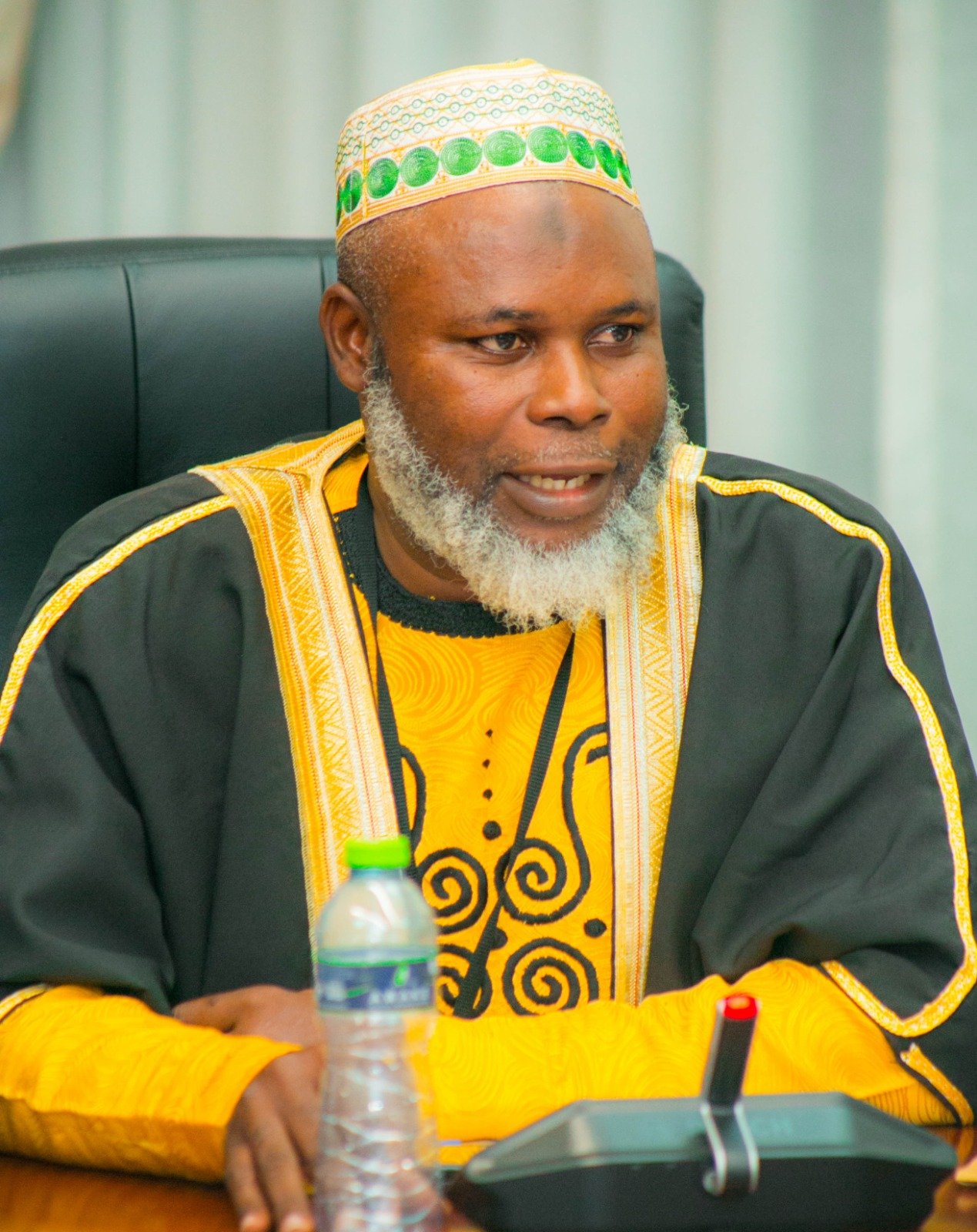Fruitful Living
Institution of Marriage in Islam (Pt.3)

Regarding sexual intimacy, it is also prohibited for a wife to demand money or gifts before allowing her husband to engage in sexual relations. Islam views this as a form of exploitation and sin. A marital relationship must be based on mutual love, respect, and affection rather than material gain.
Prohibition of sexual intercourse during menstruation
Islam has clear guidelines regarding sexual relations during certain times, particularly when a woman is menstruating. The Qur’an prohibits sexual intercourse during menstruation, stating:
“And they ask you about menstruation. Say: ‘It is harm, so keep away from women during menstruation. And do not approach them until they are pure. And when they have purified themselves, then come to them from where Allah has ordained for you. Indeed, Allah loves those who are constantly repentant and loves those who purify themselves’” (Qur’an 2:222).
This verse emphasises the importance of refraining from sexual activity during menstruation due to physical and spiritual reasons. However, all other forms of affection and companionship are allowed, and husbands should continue to care for their wives during this time with love and respect.
Islamic law encourages cleanliness and personal hygiene, especially in matters related to physical intimacy. After the menstruation period ends, it is recommended that the wife perform ghusl (ritual purification) before resuming sexual relations with her husband.
Rights of Children on Parents
Islam emphasises the rights of children on their parents, as marriage is the foundation of family life. Parents are obligated to provide their children with proper care, education, and moral guidance. The Qur’an states: “O you who have believed, protect yourselves and your families from a Fire whose fuel is people and stones…” (Qur’an 66:6).
This highlights the parents’ responsibility to raise their children with a strong sense of morality and faith. Children have the right to a good name, religious upbringing, and education, and they must be treated with fairness and love.
In Ghana’s law, there is Children’s Right Act, Act 560 (1989) which states among other things,
• Section 4, Right to Name, Nationality and secure a Birth Certificate for the child
• Section 6(3) (a&b), protection from neglect, provide good guidance, care etc
• Section 8(1&2), Right to education and wellbeing (medical care, diet, clothing, shelter).
How Do Married Couples Resolve Their Differences in Islam?
Islam provides clear guidelines for resolving marital conflicts in a just and compassionate manner.
The Qur’an instructs that in the event of marital discord, both parties should seek reconciliation:
“If you fear dissension between the two, send an arbitrator from his people and an arbitrator from her people. If they both desire reconciliation, Allah will cause it between them” (Qur’an 4:35).
The goal is always to preserve the marriage and restore harmony. If reconciliation is not possible, Islam permits divorce as a last resort, but it is considered the most disliked permissible act in the eyes of Allah (SWT).
Rewards of Marriage in Islam
Marriage in Islam is not only a social institution but also an act of worship that brings great rewards. The Prophet Muhammad (PBUH) said: “When a man marries, he has fulfilled half of his religion, so let him fear Allah regarding the remaining half” (Bayhaqi, Shu’ab al-Iman).
Married couples are rewarded for fulfilling their marital responsibilities, showing kindness to each other, and raising righteous children who contribute positively to society.
Scholarly Thoughts About Marriage in Islam
Islamic scholars, such as Imam Al-Ghazali, have discussed marriage as a means of controlling desires and fulfilling one’s spiritual obligations. Modern scholars like Sheikh Yusuf Qaradawi also stress the importance of mutual respect and understanding in marriage, ensuring that both partners can grow spiritually and emotionally within the marriage.
Conclusion
In conclusion, marriage in Islam is a divinely ordained relationship based on mutual love, respect, and responsibility. By following the guidance of the Qur’an and Sunnah, and observing the legal frameworks in place, such as Ghana’s Mohammedan Ordinance, we can establish strong and harmonious marriages that contribute to the moral and spiritual development of society. May Allah (SWT) guide us to fulfill our marital responsibilities with sincerity and love.
The Writer is Kpone Katamanso Municipal Chief Imam, Democracy and Governance Law Student, UCC, Member of Ghana National Association of Certified Counsellors Certified by Ghana Psychology Council
References:
1.Qur’an, Surah Ar-Rum (30:21)
2.Qur’an, Surah An-Nisa (4:34, 4:4, 4:19, 4:35)
3.Qur’an, Surah Al-Baqarah (2:187, 2:221, 2:222, 2:223)
4.Qur’an, Surah At-Tahrim (66:6)
5.Ibn Majah, Hadith 1845, 1905
6.Tirmidhi, Hadith 1162, 1084
7.Bukhari, Hadith 5090
8.Children’s Right Act, Act 560 (1989)
9.Bayhaqi, Shu’ab al-Iman
10.Al-Ghazali, Ihya Ulum al-Din
11.Qaradawi, The Lawful and Prohibited in Islam
Fruitful Living
‘Allahu As-Samad’

Introduction to the Concept of As-Samad
Servants of Allah, one of Allah’s most profound names, As-Samad, is mentioned in Surah Al-Ikhlas, where Allah describes His oneness and perfection:
“Say, ‘He is Allah, [Who is] One. Allah, the Eternal Refuge (As-Samad). He neither begets nor is born, nor is there to Him any equivalent.’” (Qur’an 112:1-4).
The name As-Samad encompasses the idea of Allah’s absolute independence and self-sufficiency. Ibn Abbas (RA) explained that As-Samad refers to the one to whom all creation turns in times of need, while He Himself is free from any need (Tafsir Ibn Kathir).
Allah requires no sustenance, no assistance, and no support in carrying out His plans. Yet all creation—human beings, animals, plants, and even angels—rely entirely on Him for their existence, sustenance, and success.
Allah’s Independence Demonstrated in Creation
Allah’s independence is evident in the perfection of His creation. He brought the universe into existence with unparalleled mastery. Allah states:
“Indeed, your Lord is Allah, who created the heavens and the earth in six days and then established Himself above the Throne. He manages every affair…” (Qur’an 10:3).
The heavens, the earth, the mountains, the seas, and every living creature were created without the assistance of anyone. Even the most intricate systems—such as the orbiting of planets, the growth of plants, and the functioning of the human body—operate under Allah’s command.
This is further emphasised in another verse:
“To Allah belongs whatever is in the heavens and whatever is in the earth. And Allah is free of need, the Praiseworthy.” (Qur’an 31:26).
Evidence from the Sunnah
The Sunnah of the Prophet Muhammad further emphasises Allah’s independence and self-sufficiency. In a powerful hadith qudsi, Allah says:
“O My servants, all of you are astray except for those whom I have guided, so seek guidance from Me, and I shall guide you. O My servants, all of you are hungry except for those whom I have fed, so seek food from Me, and I shall feed you. O My servants, all of you are naked except for those whom I have clothed, so seek clothing from Me, and I shall clothe you.” (Muslim, Hadith 2577).
This hadith reflects Allah’s perfection in fulfilling the needs of creation while remaining independent and unaffected by those needs. Allah’s perfection in providing is limitless, as reflected in another narration:
“Allah’s Hand is full, and it does not diminish by His continuous giving day and night.” (Bukhari, Hadith 4684).
Human Dependence on Allah
Unlike Allah, humans are intrinsically dependent on Him for every aspect of their existence. Allah says:
“O mankind, you are those in need of Allah, while Allah is the Free of need, the Praiseworthy.” (Qur’an 35:15).
This dependence is not a weakness but a natural state that reminds us to turn to Allah in all matters. The Prophet Muhammad advised his companions to rely on Allah, saying:
“If you ask, ask Allah; if you seek help, seek help from Allah.” (Tirmidhi, Hadith 2516).
Believers are encouraged to place their trust in Allah, as He alone controls every affair:
“And whoever relies upon Allah – then He is sufficient for him. Indeed, Allah will accomplish His purpose.” (Qur’an 65:3).
By Imam Alhaji Saeed Abdulai,
1BN – Michel Camp
Fruitful Living
Cultivating and maintaining Godly relationships (final part)
It is important to understand that Christlike love is not self-centred. We live in a culture that promotes a “what’s in it for me” mindset in relationships. But godly relationships reflect in a different attitude. Instead of asking, “What can I get out of this relationship?” we should ask, “How can I serve, uplift, and encourage this person?”
Whether in marriage, friendships, or even work relationships, cultivating love means sacrificing our own needs for the sake of others. Christlike love is the glue that holds godly relationships together.
Ask yourself. Am I loving those around me in the way Christ loves me? Am I willing to forgive, serve, and sacrifice for others in our relationships?
If we are truly followers of Christ, love must be at the centre of how we relate to everyone.
2. Godly Relationships Are Built on Trust and Integrity
The second point is that Godly relationships are built on Trust and Integrity. Trust is the bedrock of any healthy relationship, and integrity ensures that this trust is not broken. Without trust, relationships become strained, and eventually, they fall apart.
Proverbs 12:22 says, “The Lord detests lying lips, but He delights in people who are trustworthy.” Trust is earned through honesty, faithfulness, and a commitment to doing what is right. In godly relationships, we are called to be people of our word, to be reliable, and to act with integrity at all times.
Integrity in a relationship means that we are consistent in our character—we are the same in private as we are in public. It means we are not deceitful, manipulative, or hypocritical. Instead, we are transparent and honest. This applies to all forms of relationships, whether in marriage, friendships, or even professional relationships.
Building trust requires time and intentionality. Do our actions align with our words? Can people depend on us? If we are to maintain godly relationships, we must commit to being trustworthy and people of integrity.
3. Godly Relationships Require Forgiveness and Grace
No relationship is perfect because people are not perfect. Conflict, misunderstandings, and offenses are inevitable. But godly relationships are maintained through a posture of Forgiveness and Grace.
Ephesians 4:32 instructs us to “Be kind and compassionate to one another, forgiving each other, just as in Christ God forgave you.”
One of the most challenging aspects of maintaining godly relationships is the ability to forgive those who hurt us, intentionally or unintentionally. Holding onto bitterness or grudges only destroys relationships and erodes our peace.
When we forgive, we imitate Christ, who forgave us of our sins even when we were undeserving. Forgiveness is not about denying that we were wronged, but it is a conscious decision to release the offense and allow God to heal our hearts.
Moreover, grace is essential. Grace means giving others room to make mistakes, to grow, and to change. We are all on a journey of becoming more like Christ, and grace allows us to see others as God sees them—worthy of love, compassion, and patience.
To be continued!
Stay blessed!
For further inquiries, please contact us on Tel Nos. 0243588467 or 0268130615
Email: saltnlightministries@ gmail.com
Website: saltandlightministriesgh.org
- By Rev. Dr Joyce Aryee, the author







